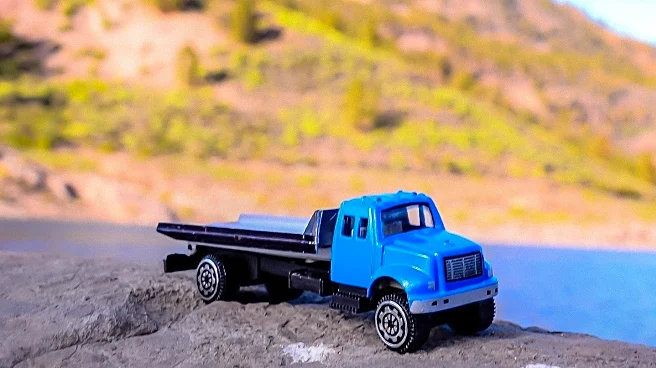What's Happening?
Kyle Miller, a mechanic known for his TikTok presence, recently shared a video showcasing a custom backup beeper installed on a Toyota truck. The video highlights the loudness of the beeper, sparking curiosity about the legality of such modifications. According to the Occupational Safety and Health Administration (OSHA), vehicles with obstructed rear views must have an audible reverse alarm or a spotter. This regulation also applies to mining vehicles under the Mine Safety and Health Administration (MSHA). Custom backup beepers are legal as long as they meet these standards, with newer broadband or white-noise alarms gaining popularity for their effectiveness without excessive noise.
Why It's Important?
The legality of custom backup beepers is significant for truck owners who enjoy modifying their vehicles. These beepers can be added alongside other popular modifications like lift kits and custom exhausts. However, for most pickup truck owners who do not legally require them, the installation of such beepers may be seen as unnecessary and potentially disruptive. The trend reflects a broader cultural phenomenon where vehicle modifications are used for attention or personal expression, impacting social interactions and community noise levels.
What's Next?
Truck owners interested in installing custom backup beepers should ensure compliance with OSHA and MSHA standards to avoid legal issues. As broadband alarms become more popular, manufacturers may focus on developing quieter, more efficient models. The trend could lead to discussions about noise pollution and the balance between personal vehicle customization and community impact.
Beyond the Headlines
The installation of custom backup beepers raises questions about the ethics of vehicle modifications that may disturb public peace. It also highlights the cultural aspect of vehicle customization as a form of self-expression, potentially influencing automotive industry trends and consumer preferences.









